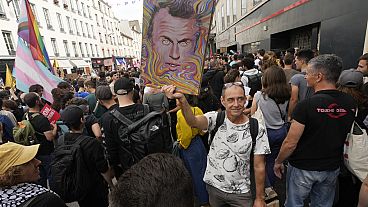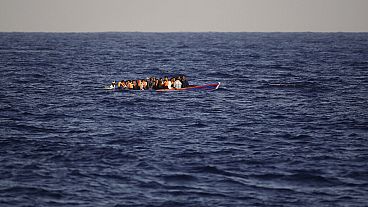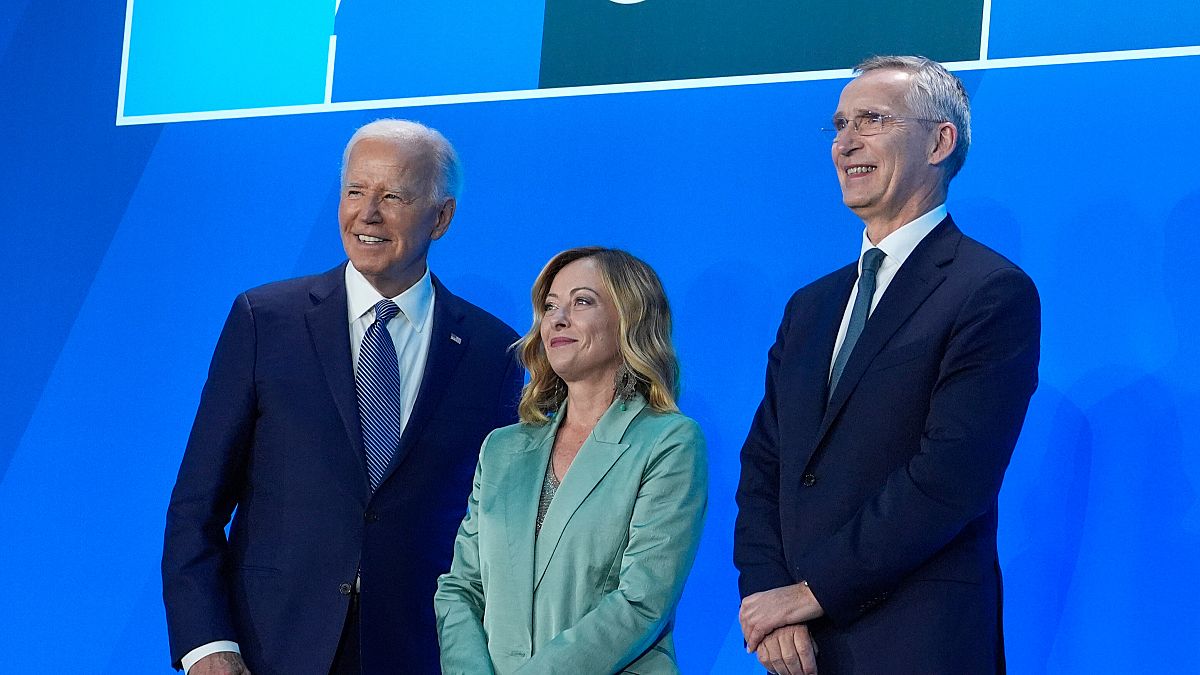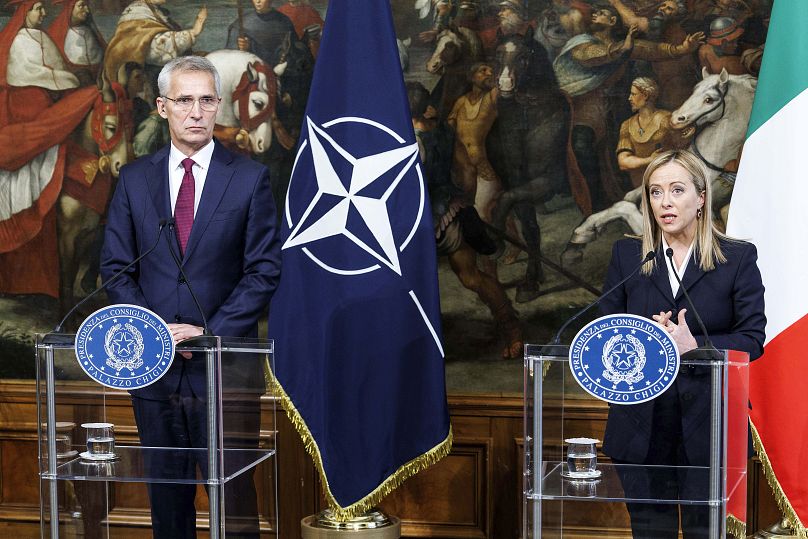Giorgia Meloni has been publicly lobbying for an Italian to be elevated to a top job at the alliance, but seemingly to no avail.
The Italian government has voiced its displeasure at the appointment of Spanish diplomat Javier Colomina as NATO's Special Representative for the Southern Neighbourhood, insisting that the prominent position should have gone to an Italian.
In a letter addressed to NATO Chief Jens Stoltenberg, Marco Peronaci, Italy's permanent representative to NATO, urged a reassessment of NATO's policies in the Mediterranean.
NATO confirmed Colomina’s appointment on Tuesday, but the debate over who should take on the role had already flared up at the recent NATO summit in Washington, where Italian Prime Minister Giorgia Meloni highlighted the strategic importance of the Southern region for the alliance and suggested the post should be given to an Italian.
Giangiacomo Calovini, who represents Meloni's Brothers of Italy party in the parliamentary committee for foreign affairs, has been closely following the case. He hopes that when Mark Rutte assumes his position as NATO Secretary General in the autumn, Italy will be given a more prominent role.
"Let me make this clear", Calovini said after Colomina's appointment was announced, "at the NATO summit in Washington, Prime Minister Giorgia Meloni stressed how much the Mediterranean region and the African continent are crucial not just for Italy and the EU but also for the whole alliance.
“Soon, in October, Mark Rutte will take over as NATO’s new Secretary General. He has maintained great relations with Meloni. We do hope that there can be a change and that an Italian delegate will be in charge instead. It’s crucial that both the questions of Africa and the Mediterranean take centre stage.
"If the person in charge ends up being Italian, it's better for us, but the important thing is that Meloni’s view will be given recognition," he added.
Both Defence Minister Guido Crosetto and Deputy Prime Minister Antonio Tajani have also shown disappointment at Stoltenberg’s decision.
Giuseppe Provenzano, an MP for the opposition Democratic Party, said the perceived snub from NATO proves Italy’s credibility on the international stage is decreasing. Others have warned the Italian government that stirring up controversy over the issue may be unwise.
Roberto Arditti, political analyst and editor-in-chief of Formiche.net, commented: "Italy’s Defence Minister complained a lot about this appointment and that a Spaniard and not an Italian was chosen for this part of the Mediterranean region, but it’s a choice that will have to be confirmed by the new incoming secretary general, Mark Rutte.
“NATO is less sensitive to politics, unlike what the public debate here in Italy suggests. NATO values investments, the availability of manpower, resources, and know-how. I think Italy has to do more on this front."
For now, it’s too early to say whether the Italian government will end up paying the price by being more isolated on a global level.
But the country’s presence in the southern flank is seen as crucial by Meloni’s government to strengthen its migration policies and strategic role in the African continent.













